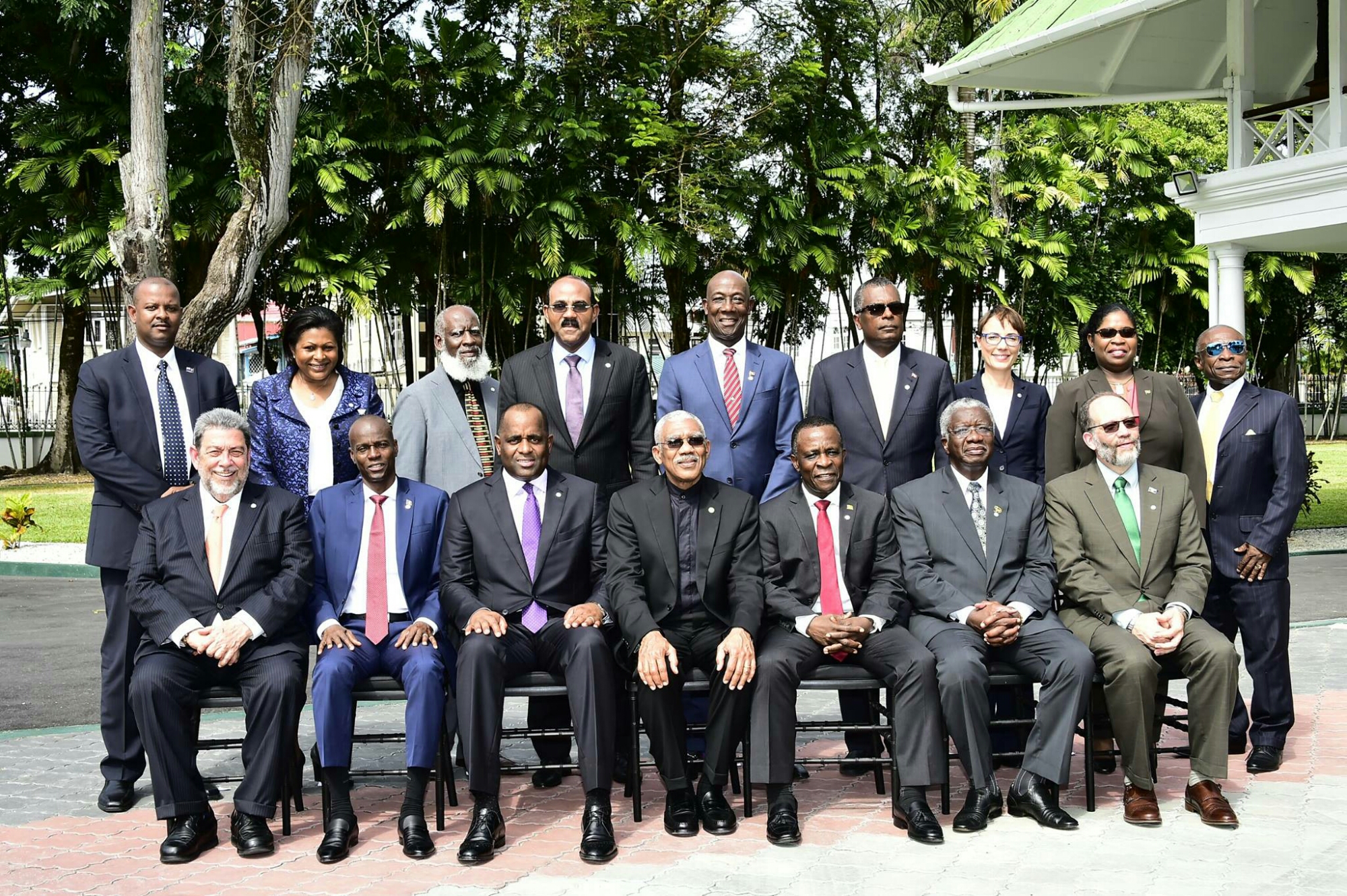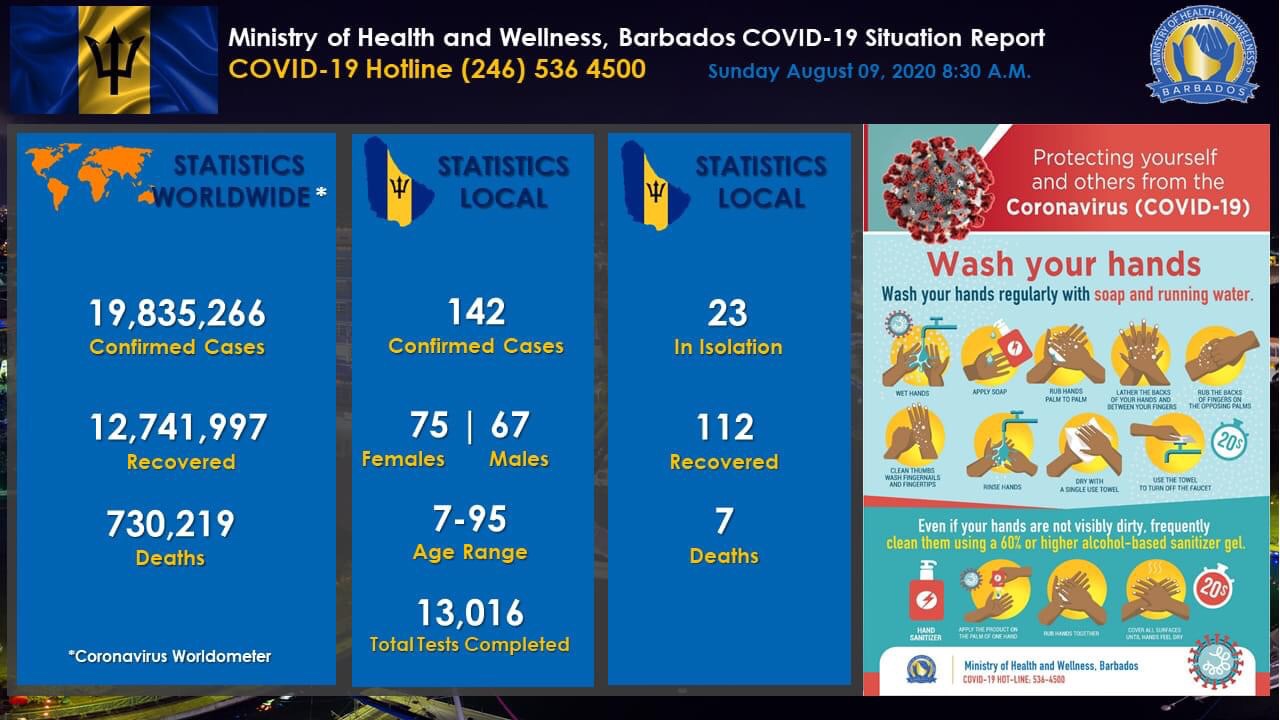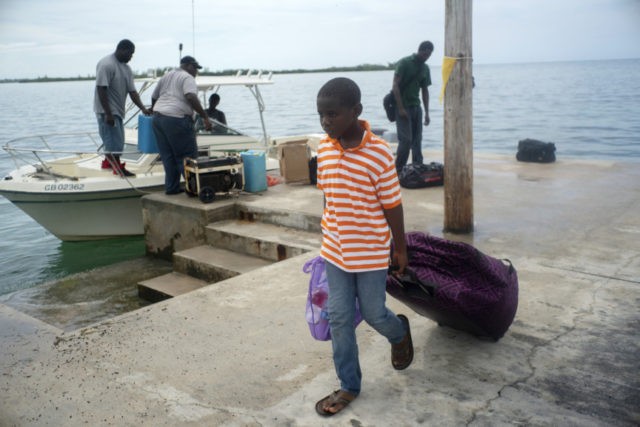BASSETERRE, ST. KITTS (FEBRUARY 20TH 2017) Heads of Government expressed grave concern at the level of crime in the Community and resolved to increase their efforts to curb the scourge, including greater focus on the social determinants of crime, especially among the youth.
Caribbean leaders, with the exception of St. Kitts and Nevis’ Prime Minister Dr. the Hon. Timothy Harris at the 28th Inter-Sessional in Guyana, received a review of the status of the CARICOM Single Market and Economy (CSME), recognised the need for a regional approach and concerted action to address effectively the challenge posed by the de-risking strategies of the global banks and welcomed and approved the Draft Roadmap for a Single ICT Space.
On the issue of crime, the regional heads of State and government committed to ensure their Attorneys-General and Ministers responsible for Legal Affairs take action to finalise Agreements which are essential to the implementation of the Regional Crime and Security Agenda.
According to the communiqué, Heads of Government also committed to take full advantage of opportunities for capacity-building to address existing and emerging threats, including those related to Cybersecurity and Cybercrime, Crime Prevention and Drug Demand Reduction.
“Heads of Government received a review of the status of the CARICOM Single Market and Economy (CSME) and noted the significant progress in implementation of the CSME. Included among the areas of achievement are the legal and institutional measures and mechanisms to support the free movement of goods, services, skills, and cross-border establishment of businesses. They noted that the CSME was a journey not a destination and addressed the continued work to be done,” it said.
Heads of Government agreed on priority areas to be addressed, including the challenges of payments for goods and services traded within the Region and the completion of the protocol on procedures relating to facilitation of travel.
“Heads of Government reiterated their concern that some of their previous decisions had not been complied with and agreed that the necessary action would be taken to effect compliance. Heads of Government also considered some impediments to furthering the CSME, including the need for the Organs and Bodies to meet and for effective consultative mechanisms, as well as capacity constraints at the national level,” the statement said.
Heads of Government recognised the supra-nationality of the Caribbean Court of Justice (CCJ) and the significant contribution of the rulings of the CCJ to strengthening the regimes of the CSME and governance of the Community.
“Heads of Government highlighted the importance of transportation to the movement of Community nationals and called for a focused discussion on transportation in the context of the integration movement. They also urged greater collaboration among the regional airlines,” said the communiqué.
The Caribbean leaders agreed to the importance of continually reviewing the impact of the CSME in both achieving the objectives of the Revised Treaty and on the lives of the people of the Community. In that context, they agreed that outstanding issues will be addressed at the Regular Meeting of the Conference in July 2017.
The leaders recognised the need for a regional approach and concerted action to address effectively the challenge posed by the de-risking strategies of the global banks which result in the withdrawal of correspondent banking services.
They also recognised the need for continued urgent action to strengthen the integrity of the financial system in CARICOM Member States and to attenuate the perception of the Caribbean as a high-risk Region.
In that regard, they considered the Strategy and Action Plan submitted by the Committee of Central Bank Governors and requested the Committee of Ministers of Finance with responsibility for Correspondent Financing to assume the oversight of its roll-out.
Regional leaders also agreed that the Region must continue its robust and unrelenting advocacy on the issue of Correspondent Banking. They noted the advocacy initiatives that had been pursued and their success in raising international awareness of the consequences of the de-risking challenge.
“Heads of Government encouraged Member States to seize the opportunity of heightened awareness among International Development Partners (IDPs) to secure the resources and support required to strengthen the domestic and regional financial system,” it said, adding: “Heads of Government welcomed the efforts of the Caribbean Development Bank (CDB) to assist Member States to strengthen their financial systems and partnering with multilateral financial institutions to determine solutions to the ongoing de-risking threat to the Community.”
The leaders present acknowledged the multi-dimensional nature of the several drivers behind the de-risking strategies being pursued by global banks, and called for a comprehensive stock-taking exercise to determine Member States’ status and ensure that national action plans are aligned with the timetable for compliance with global regulatory standards.
“Heads of Government noted particularly the need to strengthen Member States’ compliance with the global regulatory standards with regard to Anti-Money Laundering/Counter Terrorism Financing (AML/CTF) and Tax Transparency Information Exchange and commended the Prime Minister of Antigua and Barbuda, and the Committee of Ministers of Finance for spearheading the advocacy initiatives towards resolution of the continuing threat to our financial sector and to our development prospects.








